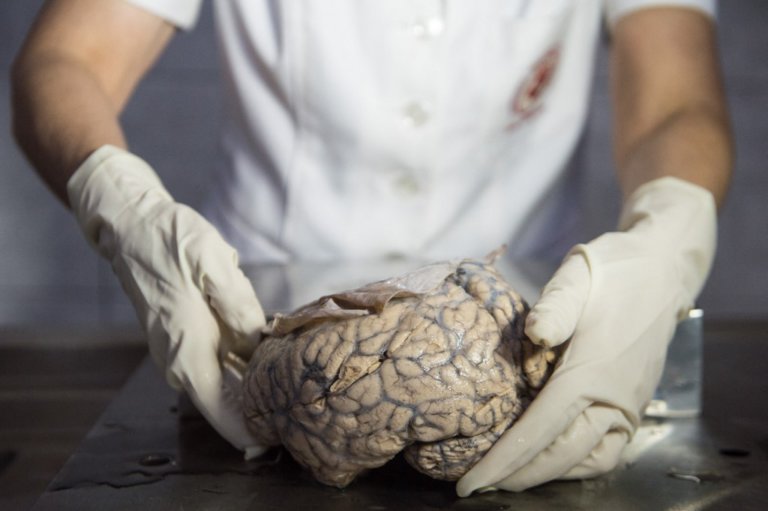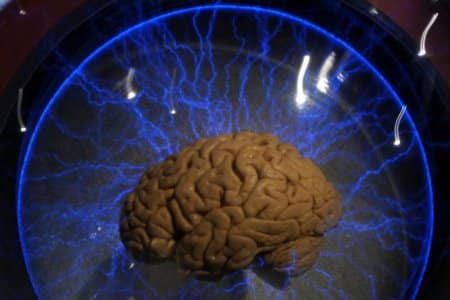
It’s safe to assume that the human mind peaks around the age of 40 — and then everything starts going downhill after that and we’re starting to Google things like “how to improve memory.”
Common characteristics of memory change include being unable to remember information well, difficulty recalling, misplacing things, or getting confused about time, people, and places, according to the National Institute on Ageing.
If you’re in your 20s or 30s and already exhibit the signs above, it’s actually more common than you think — we can attribute forgetfulness experienced by younger people to the overloading of information and dependence on technology wrought by modern life.
Want another example? Remember how it feels when you’re cramming last minute for an exam or preparing for an important presentation. That’s right — coupled with anxiety and stress, it feels impossible to retain information in those crucial moments.
Why so?

You forget the exact model name of this Nokia phone because you already own a new phone, whose model name is more relevant to you at this point in your life. Source: AFP
Why do we forget?
We don’t forget things because our brain is failing us — or worse, we’re ageing.
Humans are programmed to forget certain information, so that we can retain only the most important part of it, according to a paper by Blake Richards, DPhil, assistant professor in the Department of Biological Sciences and Fellow at the Canadian Institute for Advanced Research.
Our brain isn’t a thumb drive with infinite gigabytes of data. It can only retain what’s relevant to you.
“We found that there’s a variety of mechanisms the brain uses — and actually invests energy in — that undo and override those connections, ultimately cause us to forget information,” Richards said to CNBC.
“Our brains may want us to remember the gist of what we’ve experienced because that will be most adaptive for making decisions in the real world.”
Imagine you’ve studied chapter 20 of your lecture slides, only for your professor to hint that the exam would cover chapter 19 instead. Naturally, you would “delete” most of the information you’ve retained for chapter 20 to make space for chapter 19.
But that doesn’t mean you’ll forget chapter 20 entirely. You may recall just a line or two of information, two months after the exam — in most cases, it’s because you’re doing something that relates to what you’ve previously learned.
That’s just how the human brain works!
The science behind how to improve memory
If they stand out, if we can relate to it, or if we use it repeatedly — this is how we remember things.
“The average layperson trying to learn nuclear physics for the first time, for example, will probably find it very difficult to retain that information,” says Sean Kang, PhD, assistant professor in the Department of Education at Dartmouth College to CNBC.
His research focuses on the cognitive psychology of learning and memory.
What Kang says about relating information to what we already know is the key to us unlocking the answer to “how to improve memory.”
Sure, we may know nothing about nuclear science, but if we can find a way to link this unrelated information to what we already know, it can help us remember things better.
Another method offered by science is to replay what you read.
A 2014 research study release by Allison Preston, associate professor of psychology and neuroscience at the University of Texas at Austin, explains it as such:
“We think replaying memories during rest makes those earlier memories stronger, not just impacting the original content, but impacting the memories to come. […] Nothing happens in isolation. When you are learning something new, you bring to mind all of the things you know that are related to that information. In doing so, you embed the new information into your existing knowledge.
Science reassures us that our brain is more resilient than we think, as long as we keep it active.
While that’s great, we shouldn’t forget that there’s a good reason why we forget as well.
That’s why, first and foremost, your mental health is important; learning to manage your stress can be a great plus if you’re looking for ways on how to improve memory.

Nothing like a good ol’ honkshoomimimi. Source: AFP
How to improve memory — back to basics
We get it — exams, presentations, and deadlines are stressful. But maintaining a healthy mental state in those moments is essential to keep your mind sharp.
Learn to:
Identify burnout
Difficulty focusing, tension headaches, fitful dreams or irregular sleep patterns are signs that you’re overdoing it. There’s no point bumrushing for results when your body and mind are fatigued.
Take breaks
Don’t see breaks as being unproductive, unless you’re spending toooo much time doomscrolling on social media.
Practice the Pomodoro technique or the 3-2-1 method — take three small breaks every hour, focus on two key study areas (e.g. one for memorising theory, the other for problem-solving) and do one non-academic activity daily, such as cooking or a hobby.
Get enough sleep
We can’t stress this enough. Experts recommend aiming for 90-minute cycles to avoid sleep inertia – take a 90-minute nap, or set alarms for six to seven and a half hours of sleep. If you have to, squeezing in 10-minute naps in between the day can also boost your brain’s alertness.
With enough rest and a sharp mind, you’ll find it easier to recall things. But remember (haha) that your brain forgets 50% of what you learn within an hour unless you review it, so re-reading notes isn’t enough.
Here’s our personal tip:
Study smarter, not harder
Studying for longer does not mean better results. Use methods like spaced repetition, active recall, and make a note to switch between topics. This helps keep your brain engaged and improves your memory.
Our best tip? Predict your exam questions — many professors repeat themes and concepts each year, and by reviewing past exams, you’ll get additional insight to which topics are covered the most.

A real headscratcher. Source: AFP
How to improve your memory: other tips to remember better
Move more
Being physically active can reduce your risk of cognitive decline, including dementia.
One study found that cognitive decline is almost twice as common among adults who are inactive compared to those who are active.
You don’t have to be an Olympian to reap the benefits of being active. By taking the stairs more, walking the dog or just dancing can bring a whole lot of perks to your mind.
Use mnemonics
Mnemonics refers to the use of letters or phrases — and associating them — as a way to aid memory.
Whether remembering the points on the compass with NEWS (north, east, west, and south) or creating your own mnemonic, the key is to strike a balance — make it memorable without making it more complicated than the information you’re trying to retain.
For example, if your prep for exams requires you to remember the first five prime ministers of India, you can try the following. Remember the first alphabet of each of their first and last names (in bold below):
- Jawaharlal Nehru
- Gulzarilal Nanda
- Lal Bahadur Shastri
- Indira Gandhi
You’ll end up with JNGNLSIG — which can be turned to a sentence. The wackier the better. For example: John Needed George’s Nest and Leaves. Sally Irritated George for it.
Now isn’t that so much easier (and more fun!) to remember?

Turn your historical figures or math equations into tributes in the Hunger Games, if you must. Source: AFP
Make it relatable
When we can’t connect to events that happened 500 years ago, we will most likely forget about them once the history teacher ends class.
But if you can find a way to relate it to your life, this will help. For example, to remember how the British fought in Normandy, you can try to remember how you fought with your family during a beach holiday.
If you like writing, some people even make fanfiction out of historical figures or events to remember them better. Yes, it works — this Reddit user says, “I wrote a fanfiction about four characters discussing the concepts, explaining them to one another. One issue I had faced when studying was getting very anxious while reviewing the material, making it hard to even think clearly. Writing this fanfic eliminated that — after all, it’s fanfic. Therefore, no danger. It removed all the pressure.”
Quiz yourself
Reading over and over again won’t help you remember better. If you want to recall something you learned two weeks ago, try asking yourself questions.
The more, the better. Do it every week and you’ll see how you’ll progress — slowly but surely.
And it’s a whole lot more interesting than just rote reading.

Pretend you’re the Emperor of Japan addressing your nation about… Maslow’s Hierarchy of Needs. Source: AFP
Talk more
Picture yourself giving a speech about the topic you’re trying to memorise.
Imagine you’re at your wedding or the United Nations headquarters in front of some of the most important people in the world and your life. Act as if you’re giving a Ted Talk that’s going to be shared a million times on Facebook and Instagram.
You’ll be jolted to find ways to make the speech memorable to them — and, in turn, to you too.
Draw it
A picture paints a thousand words — and it’s a whole lot more effective than looking at more words on your notes.
Our mind recalls images better than rows and rows of words.

Pretend to fight about your lesson chapter — works wonders for memory. Source: AFP
Fight about it
Remember that big argument you had with your mum 10 years ago? You probably still know what you wore and said then but you can’t remember what you had for lunch today.
While not the most pleasant technique, you can try faking arguments with someone you love to retain some desperately boring materials. Call up your study buddy and pretend to fight about why grass should be blue instead of green — it sounds stupid, but it works. Just remember not to get into an actual fight, though.
Do one thing at a time
When you multitask, you think you’re doing more — but you’re doing more at a fraction of the quality. When we switch tasks, we respond to it 20% slower.
Worse, too much multitasking and you stand to affect your working memory and long-term memory, including attention lapses and forgetfulness.
Think about that the next time you open 50 tabs on your browser thinking you’ll be more productive and do more.
Disclaimer: This article was last updated on April 18, 2025.










